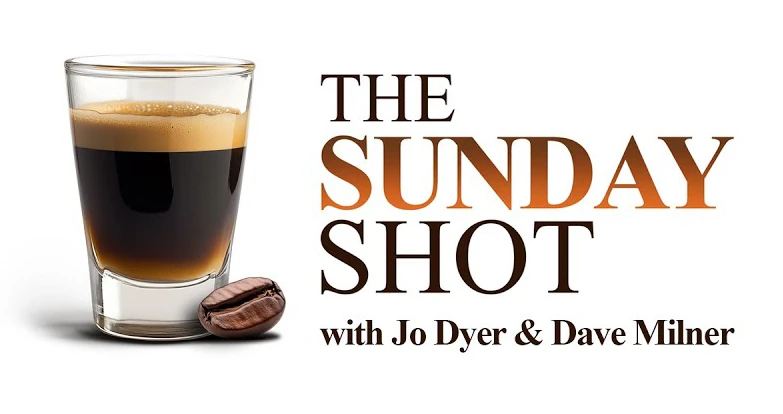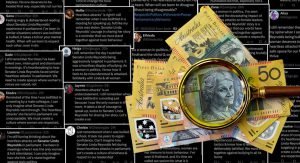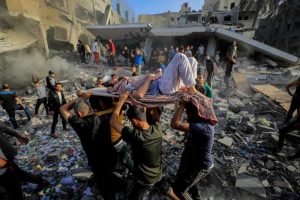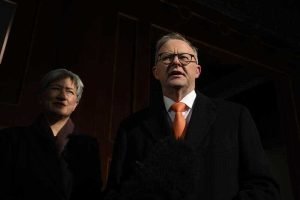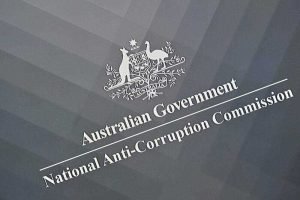The Shot
What if the referendum was about you?

Imagine if the question we will all be asked at the referendum on 14 October was being asked just about you: Would you want to be consulted before decisions were made about your future?
Do you remember what it feels like to be dismissed and ignored by someone who made a decision that directly affected your life? Or what about that time you were blamed for something you did not do?
Thinking about our own individual experiences of voicelessness may help us understand why over 80 per cent of Indigenous people will be voting ‘Yes’ in the referendum.
After all, recognising Indigenous peoples through a Voice is just a matter of fairness. It is not radical, nor will it change our system of government.
The Voice will be an advisory committee. Its strength will come from the quality of its members and the wisdom of their advice. Importantly, those members will be drawn from people and communities most affected by the policies and programs that for decades have failed to close the vast health and welfare gap between Indigenous and non-Indigenous peoples. It’s hard to think of a simpler, more common-sense idea than the Voice – listening to Indigenous people who know from their long-lived experience what works and what doesn’t.
But a successful referendum will also mean something more – it will show that the Australian people have set a new standard in Indigenous Affairs where politicians listen before acting. No Australian will lose anything from that.
It is time that we finally recognised Indigenous Australians in our constitution. Contrary to what generations of Australians have been led to believe, for thousands of years Indigenous people lived happily, within our means, in harmony with the land and what it could provide.
Captain James Cook himself, who, according to the skewed colonial records, discovered Australia’s East Coast, marvelled at how the Indigenous people “are far more happier than we Eurpopeans”.
Indigenous people have a special connection to our country. According to science, Indigenous people were here for at least 60,000 years before colonisation. According to Indigenous people and their ancestors, they’ve been here since the creation. In those tens of thousands of years they have learnt a vast amount about the country and the changes it has been through. We can learn how to adapt and act in the climate crisis by listening to them.
In my travels, holding hundreds of forums and speaking openly with many thousands of Australians about recognition and a Voice, I have occasionally heard the question: why don’t Indigenous people work harder, take more responsibility to help themselves?
If you have pondered this question, it will help to ask yourself this: Are Indigenous people ourselves to blame for our plight?
Indigenous people are not a different race. We are not inferior. We don’t choose to die almost ten years younger than non-Indigenous Australians. We don’t choose to live in third world conditions. We love our children as any parent does.
No. We are not a different race, although we have been treated that way and, through the Race Power in the constitution, we still are.
Consider this. In my grandmother’s lifetime, Indigenous people worked without pay and toiled for mere rations to help build modern Australia. In my own father’s lifetime, Indigenous babies were stolen from their mothers’ breasts. Without guardians who cared for and loved them, many children taken by the state were sexually abused. While the latter waves of migrants had the support and skills to build a future in this country, working hard, buying homes, and accumulating wealth, Indigenous people could not.
We have been marginalised. We do not choose to pass on our trauma to our kids. But science, common sense and even a skerrick of history will inform you that the vastly disproportionate incarceration rates, suicides and prevalence of preventable diseases are a result of over 200 years of failed policies and harmful laws – not a matter of our Indigenous heritage and culture. All of these problems can be far better tackled by listening to us and acting with us, not for us.
Indigenous parents who suffer from the traumas and prejudice of our past and present have not abandoned their children because of their Indigenous culture. Our children do not frequent the troubled streets in some towns because they cannot understand the difference between right and wrong. Indigenous children, men and women are overrepresented in prisons because of our voicelessness, not because of the colour of their skin and the culture and heritage that makes us who we are.
Imagine you were a teenager, living in a two-bedroom house with 10 or maybe even 20 others, with no internet and with family members with preventable diseases, mental illnesses, who have turned to drugs and alcohol under the weight of their immense struggles. How angry at the world would you be?
You wouldn’t choose to live that way, so why would we?
If it is true (and it is not) that there is $30billion dollars disbursed by the Government to 800,000 Indigenous people, then why would we choose to live in squalor?
Indigenous people do not own the problem. Australia does. This referendum is a once in a generation opportunity to reset the relationship with Indigenous people. It’s a chance to set a new standard where politicians must listen to Indigenous people when they make decisions about our future.
The No campaign instead is defending the status quo. Note how they speak of anything other than solutions. In their campaign strategy, revealed by the Sydney Morning Herald, the ‘No’ campaign is instructing their volunteers to use fear and doubt rather than facts. They’ve told them not to identify themselves upfront as No campaigners. Does that sound dishonest to you?
It is time to try something different, to unify the country by saying ‘Yes’. Yes to hope. Yes to change. Yes to better outcomes. Why would we say ‘No’ to that?
Before you cast your vote on 14 October, listen to the invitation to the whole country in the Uluru Statement from the Heart:
Proportionately, we are the most incarcerated people on the planet. We are not an innately criminal people.
Our children are aliened from their families at unprecedented rates. This cannot be because we have no love for them.
And our youth languish in detention in obscene numbers. They should be our hope for the future.
These dimensions of our crisis tell plainly the structural nature of our problem. This is the torment of our powerlessness.
We seek constitutional reforms to empower our people and take a rightful place in our country. When we have power over our destiny, our children flourish, they will walk in two worlds, and their culture will be a gift to their country.
We call for the establishment of a First Nations Voice enshrined in the constitution.
In 1967 we were counted. In 2017 we seek to be heard. We invite you to walk with us in a movement of the Australian people for a better future.
***
Thomas Mayo is a Kaurareg Aboriginal and Kalkalgal, Erubamle Torres Strait Islander man, a director of Australians for Constitutional Recognition, and assistant national secretary of the MUA. He is the author of six books including a book co-authored with Kerry O’Brien, The Voice to Parliament Handbook – All the details you need. He is a spokesperson for Yes23.

